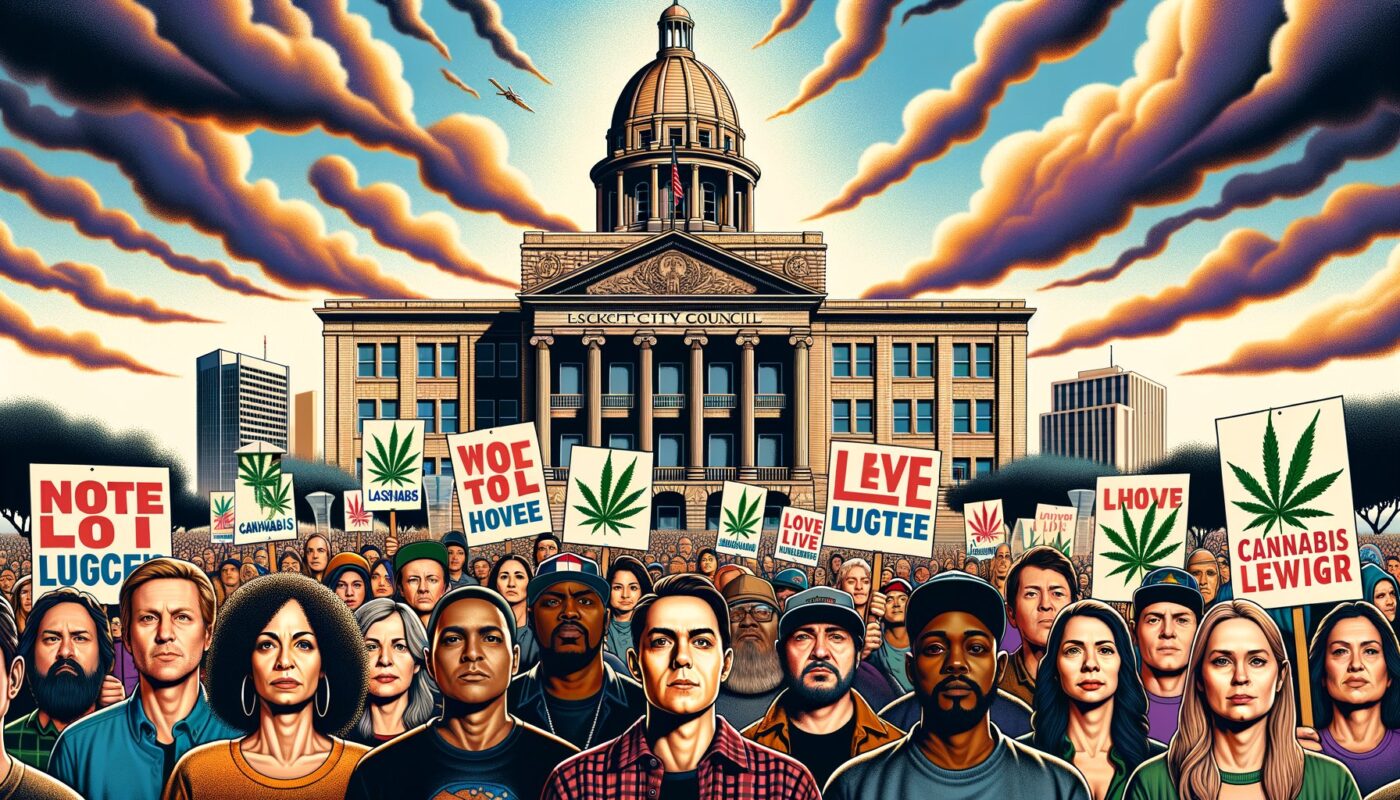In the heart of Texas, marijuana advocates in Lockhart find themselves embroiled in a tension-filled battle with the City Council. The controversy centers around the Lockhart Freedom Act, a voter-approved ordinance aimed at reducing criminal penalties for low-level marijuana possession. Regular citizens and advocates claim the Council is being unduly influenced by external forces, notably citing a fear of what they perceive as a “cowboy in Austin.”
Background on the Lockhart Freedom Act
Passed with a 68% majority in November 2024, the Lockhart Freedom Act sought to amend the city charter to eliminate criminal penalties for possessing small amounts of marijuana within city limits. However, city officials, highlighting potential conflicts with Texas state laws, delayed its implementation, sparking frustrations among voters and residents.
Councilmember John Castillo voiced his concerns by reminding other members to “honor what the community decided”. This sentiment resonates among many citizens who feel disenfranchised by the Council’s closed-door decision to not honor the referendum results.
Public Sentiment and Reaction
Residents attended a public forum where emotions ran high. Margaret Carter, a resident, passionately demanded recognition of their democratic choice. Doug Rikardsen further challenged the Council’s action, emphasizing America’s democratic values.
The tension culminated in a pointed pizza protest, symbolizing the 68% of voters who backed the Freedom Act. Community advocate Josh Schaefer criticized the decision, noting that it defies the will of the people.
Legal Considerations and Council’s Hesitation
The city attorney, Brad Bullock, cited the Lockhart Home Rule Charter, explaining the legal complexities associated with enforcing ordinances that may conflict with state and federal laws. Bullock’s stance remains clear: amendments included in the city charter do not shield the Council from potential lawsuits.
Despite such concerns, many advocates argue that the ordinance does not legalize marijuana; it merely prioritizes city resources elsewhere. As noted by other Texas proposals striving for similar reforms, the debate continues, intertwining local governance with broader state-level challenges.
Community’s Call for Re-Vote and Transparency
As community voices strengthen, the City Council has scheduled a public re-vote. This decision is vital as it represents a significant step towards transparent governance. The upcoming vote will be critical in determining if city officials can bridge the gap between adhering to legal frameworks and honoring voter intentions.
The upcoming decision not only affects Lockhart but resonates across Texas, offering insights into how small communities can navigate contentious issues amid broader state policies. As residents eagerly await the vote, the resulting decision could set a precedent for similar situations in the state.
In conclusion, the unfolding scenario in Lockhart highlights essential discussions around democracy, local governance, and the community’s power. Residents are keenly aware that the decision will reflect their ability to enact change through the democratic process, echoing sentiments similar to those in recent Austin public health concerns. Only time will tell how this dynamic democratic process unfolds.
Warning : This information is indicative and without guarantee of accuracy. Consult a professional before making any decision.





